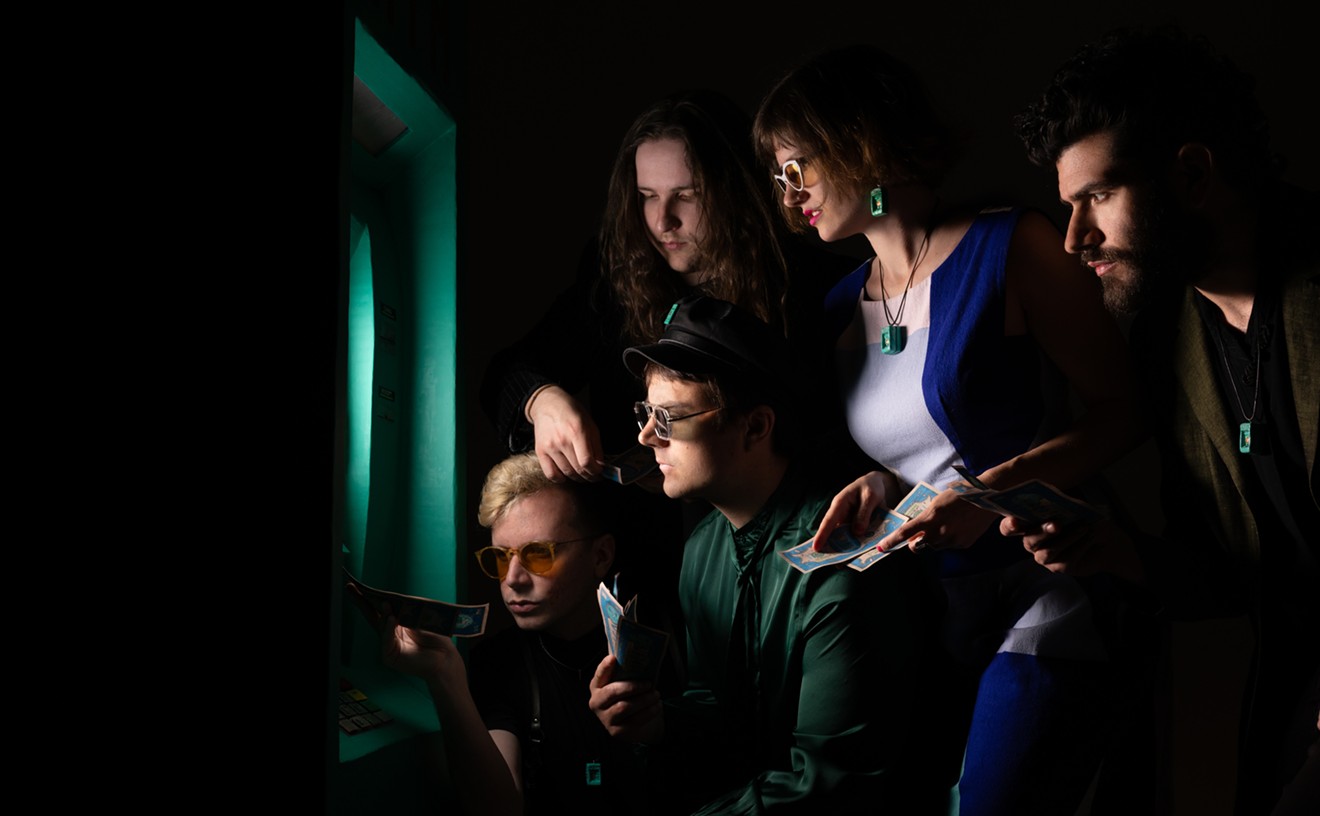It’s been two years since Cuban dissident rapper Bian “El B” Rodriguez decided to seek political asylum in Miami. It wasn’t an easy decision to leave Havana, where his critical lyrics with rap duo Los Aldeanos sparked a conscious hip-hop movement and helped liberate young Cuban minds around the country. But, after concerns over his safety grew, he was pushed to make the move. Since then, he’s been living in downtown Miami with his wife and DJ, Lyda Cao, transitioning to American culture and getting to know the price of freedom.
This summer, he released his first solo album since leaving the island, Luz — a nostalgic ode to his people back home and a sobering reminder that, though Cuba may be en moda right now, what the island really needs is change and not just a rapprochement.
Soon after Luz dropped, the MC’s performance at the now-defunct Icon Nightclub was abruptly canceled. Despite talks of “neutralizing ties,” Rodriguez affirms it’s because the club owners didn’t like his harsh lyrics against the Cuban government, such as lines like, “An island governed by murderers and thugs/They call us traitors as they betray us/and force a nation to emigrate to be able to live like people” from the track "Emigrante." Rodriguez is no stranger to censorship; none of his albums can be heard on Cuban radio or through official channels, but he never expected it to happen on this side of the Straits.
“They could have easily told me to not play my music because they didn’t like it,” Rodriguez says. “But, many people are now interested in investing in Cuba, and to invest in Cuba you have to be limpio — they won’t negotiate with a person who is against the Cuban government.”
But Rodriguez’s resolve has paid off. Last month, Luz was nominated for a Best Urban Music Album Latin Grammy. The album features a collaboration with Talib Kweli on “Sigo Aqui," whose parallel struggles with police brutality mirrors Rodriguez’s own fight against government forces. The critical recognition has been a pleasant surprise in the face of Luz's controversial lyrics and noncommercial nature.
“It’s not just recognition from the street; it’s the industry recognizing an artist making music for the street,” says Rodriguez. “It’s important to be opening the door for independent artists like me.”
Rodriguez has always been drawn to conscious lyrics. He grew up listening to Tupac, and Puerto Rican rapper Vico C was his earliest introduction to Spanish rap lyrics. Hip-hop was an outlet for him as he lived through the Special Period, an economic crisis that hit Cuba after the Soviet Union collapsed in the late '80s and lasted until the early 2000s. Severe economic circumstances pushed Rodriguez and his family to live in a shelter. This is what inspired him to do what few others dared to at the time — rap about the truth.
“Imaginate, growing up like that and then seeing how others were living a different reality because their families were a part of the military, yet hearing that we were all the same. It was a lie,” he says.
For some, these experiences can destroy the spirit, but Rodriguez channels struggle into his music, whether it’s the distance and loneliness of a new country or crippling government oppression. The song “La Carta” captures this angst perfectly.
In that track, “La Bayamese,” Cuba’s Himno Nacional, a song that has incited nationalist war since its inception in the 1800s, plays as Rodriguez raps about pain and the continuous lucha for liberty felt by those still on the island.
Though he hasn’t played a concert in Cuba in four years and now lives stateside, Rodriguez will never stop being Cuban. As he says in “Sigo Aqui,” his struggles are the dreams of his people.
“I could be living here, in Alaska, wherever. I’m Cuban,” he says.
[
{
"name": "Air - MediumRectangle - Inline Content - Mobile Display Size",
"component": "19274298",
"insertPoint": "2",
"requiredCountToDisplay": "2"
},{
"name": "Editor Picks",
"component": "17482312",
"insertPoint": "4",
"requiredCountToDisplay": "1"
},{
"name": "Inline Links",
"component": "18711090",
"insertPoint": "8th",
"startingPoint": 8,
"requiredCountToDisplay": "7",
"maxInsertions": 25
},{
"name": "Air - MediumRectangle - Combo - Inline Content",
"component": "17482310",
"insertPoint": "8th",
"startingPoint": 8,
"requiredCountToDisplay": "7",
"maxInsertions": 25
},{
"name": "Inline Links",
"component": "18711090",
"insertPoint": "8th",
"startingPoint": 12,
"requiredCountToDisplay": "11",
"maxInsertions": 25
},{
"name": "Air - Leaderboard Tower - Combo - Inline Content",
"component": "17482313",
"insertPoint": "8th",
"startingPoint": 12,
"requiredCountToDisplay": "11",
"maxInsertions": 25
}
]











